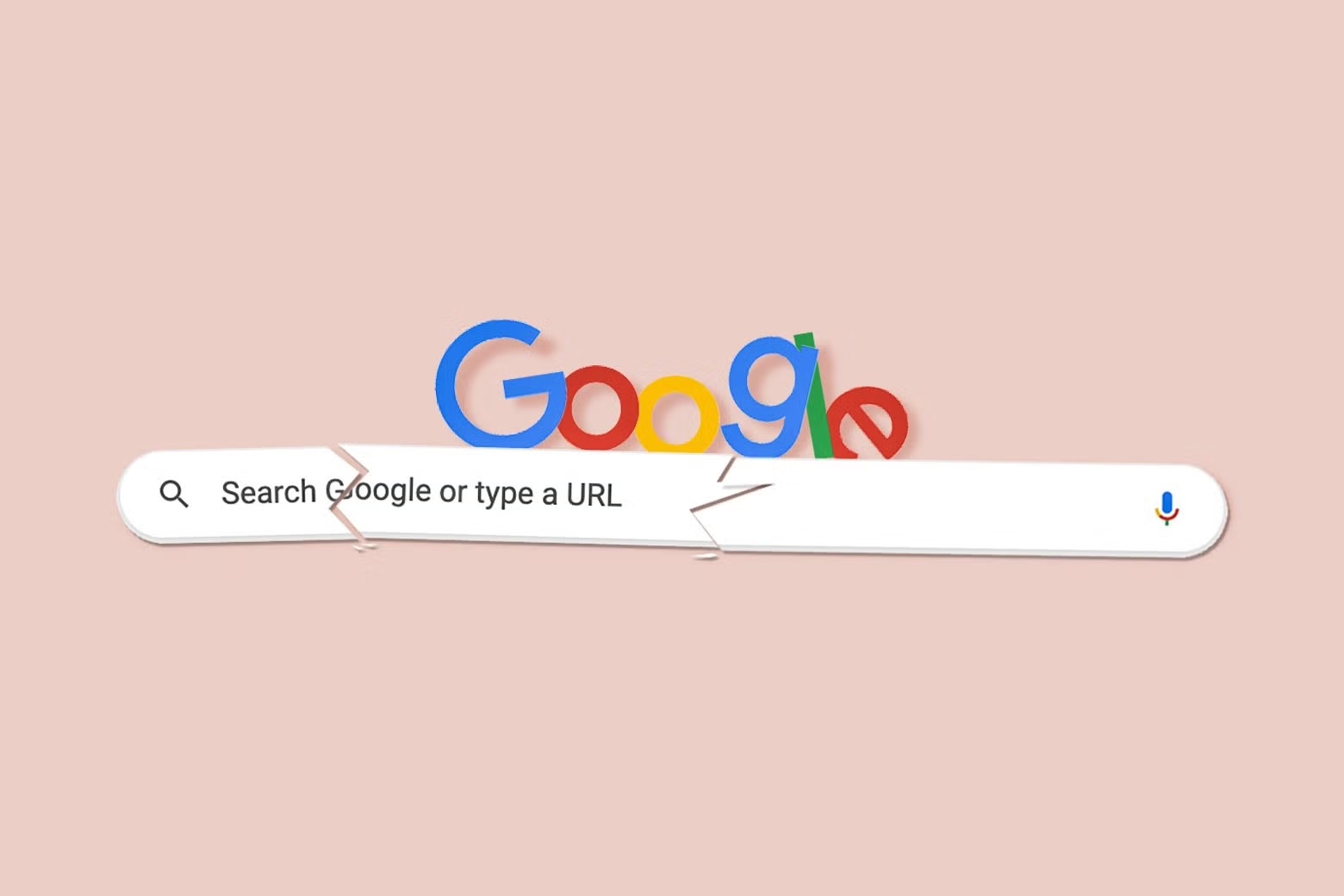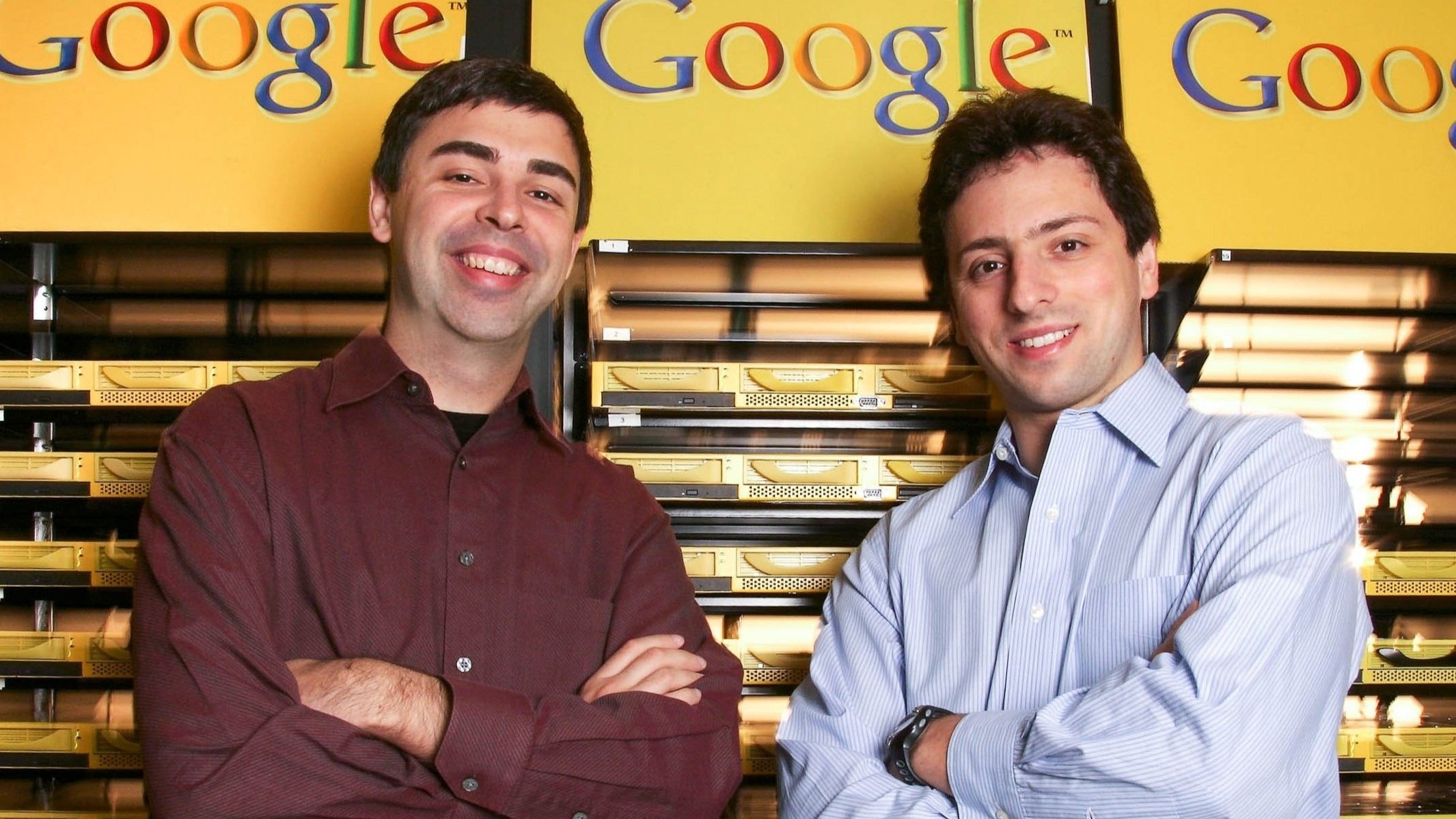50 Surprising Facts About Google
- From searching Mars to renting goats, Google is doing things you’d never expect.
- Over 15% of Google searches every day are brand new. How is that even possible?
- You won’t believe what Google did with YouTube at a Denny’s. Spoiler: It’s huge.
- Think you know Google? These facts will make you question everything.
Google is everywhere—from your searches to the way you navigate the world. But while most people know the basics, there’s a wealth of mind-blowing details about this tech titan that most have never heard of. From its quirky beginnings to the shocking size of its operations today, Google is a company full of surprises. Let’s explore the most fascinating and unexpected facts about Google that’ll leave you in awe.
Here are over 50 surprising, intriguing, and often downright bizarre facts about Google:
General Facts About Google
- 5.4 Billion Searches Per Day: Google processes a staggering 5.4 billion searches every single day. That's 70,000 searches per second.
- 15% of Daily Searches Have Never Been Seen Before: Even with billions of searches a day, 15% of them are brand new—queries the system has never processed.
- 246 Million Unique U.S. Visitors: More than 246 million unique visitors come from the U.S. alone, which is higher than the country’s population.
- 91.9% Market Share: Google dominates the search engine market with a 91.9% global market share, making it practically synonymous with searching online.
- Over 1 Billion Google Lens Searches: Google Lens, the visual search tool, has now processed over 1 billion searches since its launch.
- $110 Billion in Ad Revenue: Google’s ad revenue alone surpasses $110 billion annually, making ads its primary income source.
- The Most Searched Query? Facebook: Despite being a tech competitor, "Facebook" is the most searched term on Google. Who would've thought?
- Gmail Has Over 1.5 Billion Active Users: Google’s email service, Gmail, has more than 1.5 billion users globally, further solidifying its dominance in online services.
- Google Search Grew 2,000% in 20 Years: Since Google’s inception, search traffic has skyrocketed by more than 2,000%, a growth rate that most companies can only dream of.
- Alphabet Generates Over $136 Billion in Revenue: Google’s parent company, Alphabet, hit over $136 billion in revenue in 2018 alone.
 Photo via Slate // Google has been the frontpage of the internet for over a decade. But with the recent rise of AI, will Google be able to keep its crown?
Photo via Slate // Google has been the frontpage of the internet for over a decade. But with the recent rise of AI, will Google be able to keep its crown?
Google Maps & Search Statistics
- Over 5 Billion Google Maps Downloads: Google Maps has surpassed 5 billion downloads, making it one of the most used apps in history.
- Google Maps Lets You Explore Mars: Yes, you read that right! Google Maps allows users to explore not only Earth but Mars as well.
- 20 Petabytes of Data Power Google Maps: Google Maps runs on an astounding 20 petabytes of data (1 petabyte equals 1 quadrillion bytes!).
- 63.76% Market Share for Google Maps: Google Maps holds a whopping 63.76% share of the mapping market, with the next closest competitor only at 4.59%.
- 2 Trillion Searches Per Year: Google processes over 2 trillion searches each year. That’s more than the total number of stars in our galaxy.
- More Than 60% of Searches Come From Mobile: With the rise of smartphones, more than 60% of all Google searches now come from mobile devices.
 Photo via 1000 Logos // Google logos from 1995 to 2024.
Photo via 1000 Logos // Google logos from 1995 to 2024.
Fun Facts About Google’s Early Days
- Google Started in a Garage: Larry Page and Sergey Brin started Google in a garage, like so many Silicon Valley success stories. That same garage is now part of Google’s corporate property.
- The Name ‘Google’ Was a Mistake: The name "Google" was actually a misspelling of "googol," the mathematical term for a 1 followed by 100 zeros.
- First Storage Solution? Lego Blocks: Google’s first-ever storage solution was made out of Lego blocks to house ten 4GB hard drives, which is still on display at Stanford.
- First Doodle Was for Burning Man: The very first Google Doodle was an out-of-office message when the founders attended the Burning Man festival in 1998.
 Photo via Pivotal // Google founders Larry Page and Sergey Brin in 1998.
Photo via Pivotal // Google founders Larry Page and Sergey Brin in 1998.
Company Stats and Acquisitions
- Google Buys One Company Per Week: Since 2010, Google has averaged one acquisition per week. That means every seven days, the tech giant is adding another tool or service to its portfolio.
- YouTube Acquisition Happened at Denny’s: Google acquired YouTube in 2006 for $1.65 billion—and the deal went down at a Denny’s.
- 271 Products and Counting: Google has developed over 271 products, ranging from the famous search engine to AI-powered tools, cloud computing, and even hardware like the Pixel phones.
- Google Makes $30 Billion in Profit Annually: Between Google, YouTube, and other Alphabet companies, Google nets more than $30 billion in profit every year.
- 100,000 Employees Globally: With over 100,000 employees worldwide, Google is one of the largest employers in the tech sector.
Chrome and Android Stats
- Chrome Holds 64% of the Browser Market: Google Chrome dominates the browser market, capturing 64% of global users.
- 5 Billion Installs of Google Chrome: Despite every smartphone having a built-in browser, Chrome has been installed over 5 billion times worldwide.
- 200 Million Protected by Chrome Monthly: Chrome protects over 200 million users each month from malicious websites, making the web a safer place.
- 85% of Mobile OS Market Belongs to Android: Google’s Android dominates the mobile operating system market with an 85% share, leaving Apple’s iOS far behind.
- 2 Billion Active Android Users: There are over 2 billion active monthly Android users, powering an ecosystem that’s still growing rapidly.
 Photo via Google // Just a few of Google's services/apps logos.
Photo via Google // Just a few of Google's services/apps logos.
Fascinating Tidbits About Google’s Culture
- Google Rents Goats to Mow Lawns: Instead of using traditional lawn mowers, Google hires a herd of goats to graze the grass at its headquarters. It’s as environmentally friendly as it is quirky.
- Googleplex Houses a T-Rex Skeleton: The Googleplex in Mountain View, California, features a massive T-Rex skeleton named "Stan" to remind employees to not let the company go extinct.
- Dogs Are Welcome at Google: Dogs are welcome at Google offices, provided they have a "strong bladder" and a "friendly disposition." Cats, however, are discouraged due to the number of dogs around.
- First Google Snack? Swedish Fish: In 1999, the very first snack Google ever offered its employees was Swedish Fish, a chewy candy that remains iconic at the company to this day.
 Photo via Google // A concept image of Google's London headquarters.
Photo via Google // A concept image of Google's London headquarters.
Google’s Impact on Language and Communication
- The First Google Tweet? Binary Code: Google’s first-ever tweet was “I’m feeling lucky” in binary code—paying homage to the company’s geek roots.
- Google Became a Verb in 2006: The Merriam-Webster and Oxford dictionaries officially recognized "Google" as a verb in 2006, solidifying its place in the English language.
- Street View Has Photographed 28 Million Miles of Road: Google Street View has captured more than 28 million miles of road, making it possible to explore nearly any place on Earth from your computer.
- reCAPTCHA Helps Teach AI to Read: Every time you solve a CAPTCHA, you’re helping Google’s AI learn to read text, especially words scanned from books or street signs.
More Quirky and Cool Facts
- Google Earth Was Originally Called ‘Earth Viewer’: Before Google acquired Keyhole Inc. in 2004, what we now know as Google Earth was called "Earth Viewer."
- Google+ Died Due to Design Flaws: Google’s ill-fated social media platform, Google+, was shut down in 2019 due to low user engagement and privacy issues.
- One Google Search Equals Apollo 11's Computing Power: A single Google search uses the same amount of computing power that it took to send the Apollo 11 astronauts to the moon.
- Google Turns Your Search Results ‘Askew’: If you search the term “askew,” Google tilts your search results to match the word’s meaning.
Google’s Commitment to the Environment and Innovation
- 100% Renewable Energy Since 2018: In April 2018, Google became the first major company to match 100% of its energy consumption with renewable energy sources.
- Self-Driving Cars Came From Google X: Google X, the company’s secretive innovation lab, was behind the development of Waymo, Google’s self-driving car division.
- Google Recycles All Its Electrical Equipment: Committed to sustainability, Google recycles all of its electronic equipment, from old servers to outdated hardware.
Google’s Big Impact on the Economy
- Google Contributes $385 Billion to the U.S. Economy: In 2022, Google contributed $385 billion in economic activity to the U.S. through advertising, apps, and cloud services.
- Death Benefits for Google Employees: If a Google employee passes away, their spouse will receive 50% of the employee’s salary for the next 10 years as part of Google’s death benefit policy.
![]() Photo via New Atlas // Google's new Silicon Valley headquarters.
Photo via New Atlas // Google's new Silicon Valley headquarters.
Google and the Future
- Quantum Computing on the Horizon: Google is working on quantum computing, which has the potential to revolutionize everything from data encryption to medicine.
- Google is Betting Big on AI: From self-driving cars to smarter search algorithms, Google’s future is deeply intertwined with artificial intelligence. CEO Sundar Pichai once said, “AI is one of the most profound things we’re working on as humanity. It’s more profound than fire or electricity.”
- Future Goals Include Internet Balloons and Drones: Google’s ambitious future projects include providing internet to remote areas via high-altitude balloons and drones through Project Loon and Wing.
The Future of Google is Just Beginning
While Google’s achievements are already staggering, the company is constantly reinventing itself. Whether it’s their deep dive into artificial intelligence, quantum computing, or their eco-friendly initiatives, Google isn’t done shocking the world just yet. What’s next for Google? With its penchant for innovation, it’s anyone’s guess—but you can be sure it’ll be something that leaves us all amazed.
Recommended by the editors:
Thank you for visiting Apple Scoop! As a dedicated independent news organization, we strive to deliver the latest updates and in-depth journalism on everything Apple. Have insights or thoughts to share? Drop a comment below—our team actively engages with and responds to our community. Return to the home page.Published to Apple Scoop on 11th October, 2024.
No password required
A confirmation request will be delivered to the email address you provide. Once confirmed, your comment will be published. It's as simple as two clicks.
Your email address will not be published publicly. Additionally, we will not send you marketing emails unless you opt-in.